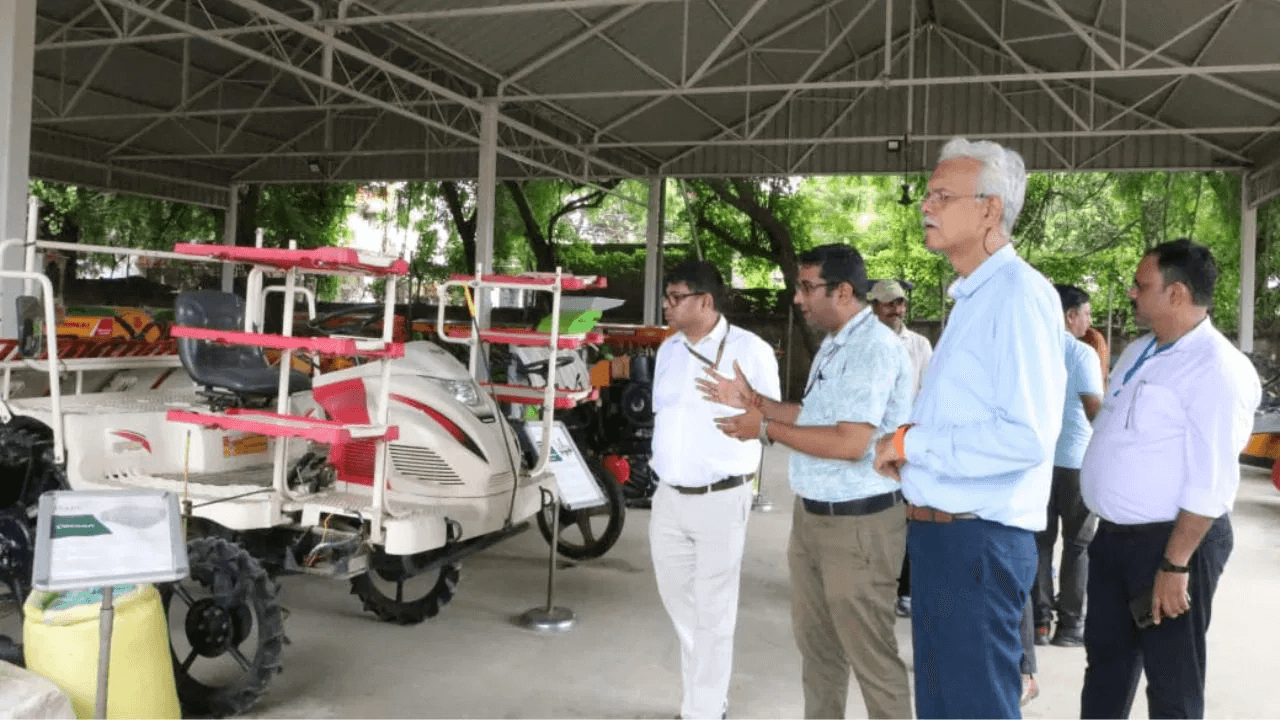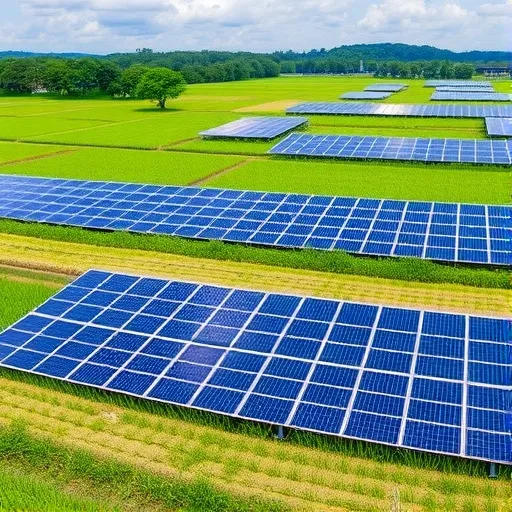Tags
German president checks out Thai-German sustainable farming project in Northeast

German President Frank-Walter Steinmeier, who has been in Thailand on a state visit, looked in on a development project in Ubon Ratchathani that promotes sustainable, climate-friendly farming.
Steinmeier travelled to the Northeast province on Friday, where he met local farmers at the Suan Ta Rom Demonstration Farm in Trakan Phuet Phon district.
The 35-rai (5.6-hectare) of integrated farmland is part of the Inclusive Sustainable Rice Landscape (ISRL) project, which is a collaboration between Thailand and Germany. The project encourages farmers to grow rice in a way that helps reduce global warming and to adopt the principles of sustainable agriculture.
The German leader and his entourage were welcomed at the farm by Agriculture and Cooperatives Minister Thammanat Prompao and Thai Ambassador to Germany Nadhavathna Krishnamra. Ministry and provincial officials were also present.
The leader, his wife and other members of the entourage also met local community leaders and farmers who are members of the Thai-German project.
Sustainable techniques
As part of the project, the demonstration farm adopts techniques to better manage soil and water. These include laser technology in levelling soil in rice fields, which helps reduce the loss of fertiliser, ensuring proper fertilisation of the crop.
An improved water management system is also applied to reduce the amount of water and fuel used in growing rice. Costs are also reduced by using cattle manure for fertiliser and applying the amount used based on soil analysis results.
Farm stubble, meanwhile, is turned into animal feed to reduce the burning of waste.


Ubon Ratchathani, the largest province in the Northeast, has 4.2 million rai of land devoted to rice farming – among the largest nationwide.
Thailand is a leading rice producer and exporter in the global market, with an estimated annual output of 30 million tonnes, of which 10 million tonnes is exported.
However, without sustainable land management over the past several decades, the country has been suffering from the adverse impact of greenhouse gas emissions. Monocropping and forest encroachment have also led to environmental degradation, declining biodiversity and weakened ecosystems.
Pilot project
The ISRL project is funded by the Global Environment Facility through the United Nations Environment Programme. Germany’s main development agency GIZ (German Development Cooperation) is implementing ISRL pilot projects in Ubon Ratchathani and Chiang Rai in the North, in collaboration with Thailand’s Agriculture and Cooperatives Ministry’s Rice Department and Olam Agri, a multinational agri-business company.
More than 45,000 farmers across Thailand participating in the ISRL project are encouraged to help lower greenhouse gas emissions by implementing climate-friendly rice farming practices and technologies.
The project aims to turn more than 652,500 rai of land into a sustainable rice-growing area, with more than 187,500 rai prepared for reforestation and crop rotation. The goal is to cut greenhouse gas emissions from the Thai agricultural sector by an equivalent of 3.2 million tonnes of carbon dioxide and reduce the use of chemicals in agricultural processes by up to 100 tonnes when the project is completed in 2027.

Published Date: January 27, 2024






